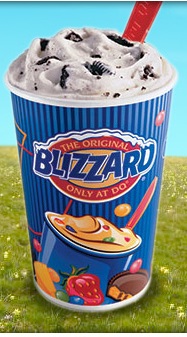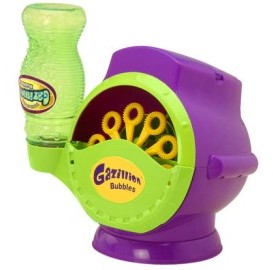Los Angeles, CA – Trademark and franchise law attorneys filed a lawsuit on behalf of the Dairy Queen® franchisor against a Culver City franchisee for allegedly breaching the franchising agreement and for trademark infringement. Dairy Queen’s trademarks have been registered with the USPTO and since the 1940’s have been franchised or licensed for use on ice cream, dairy products, and other consumables. In this case, Defendant Lee had executed two franchising agreements and licensed the rights to use Dairy Queen’s numerous trademarks. The franchising agreements require the franchisee to maintain the store at a specific standard, follow operating procedures, pay a monthly license fee, pay a lease administration fee, and pay a sales promotion program fee.
 The complaint continues that the franchisee must also agree to allow Dairy Queen to audit the financial records to determine whether the proper amount of the licensing fee is being paid. If any of these franchising terms were not met and cured, it would constitute a default and the franchise rights would be terminated. After termination, the franchisee would agree to immediately cease the use and display of all of Dairy Queen’s trademarks. The terminated franchisee would also need to pay a termination fee to compensate Dairy Queen for the early termination of the franchising agreement. The complaint alleges that defendant Lee failed to comply with the upkeep standards set by Dairy Queen for its franchisee’s location and was given 60 days to correct the deficiencies, which went uncorrected. The complaint also alleges that, after an audit, it was determined that Lee underpaid Dairy Queen by $16,911.84, which Lee failed to pay after receiving notice. The complaint alleges the following causes of action: (1) Trademark infringement of USPTO registered trademarks; (2) False designation of origin under the Lanham Act 43(a) (15 U.S.C. 1125(a)); (3) Federal trademark dilution of famous trademarks under the Lanham Act 43(c) (15 U.S.C. 1125(c)); (4) Trademark counterfeiting; and (5) Breach of contract. The case is titled American Dairy Queen Corporation and DQF, Inc., v. Myung Taek Lee, CV08-01505 AHM (C.D. California).
The complaint continues that the franchisee must also agree to allow Dairy Queen to audit the financial records to determine whether the proper amount of the licensing fee is being paid. If any of these franchising terms were not met and cured, it would constitute a default and the franchise rights would be terminated. After termination, the franchisee would agree to immediately cease the use and display of all of Dairy Queen’s trademarks. The terminated franchisee would also need to pay a termination fee to compensate Dairy Queen for the early termination of the franchising agreement. The complaint alleges that defendant Lee failed to comply with the upkeep standards set by Dairy Queen for its franchisee’s location and was given 60 days to correct the deficiencies, which went uncorrected. The complaint also alleges that, after an audit, it was determined that Lee underpaid Dairy Queen by $16,911.84, which Lee failed to pay after receiving notice. The complaint alleges the following causes of action: (1) Trademark infringement of USPTO registered trademarks; (2) False designation of origin under the Lanham Act 43(a) (15 U.S.C. 1125(a)); (3) Federal trademark dilution of famous trademarks under the Lanham Act 43(c) (15 U.S.C. 1125(c)); (4) Trademark counterfeiting; and (5) Breach of contract. The case is titled American Dairy Queen Corporation and DQF, Inc., v. Myung Taek Lee, CV08-01505 AHM (C.D. California).
 Los Angeles Intellectual Property Trademark Attorney Blog
Los Angeles Intellectual Property Trademark Attorney Blog


 The complaint alleges that the Aahs defendants manufacture and sell bubble machines which are substantially copied from the plaintiff’s “Gazillion Bubble Machine and box packaging and Defendants Aahs’ bubble bottle and wand is substantially copied from and contains the same physical appearance and features as the trade dress of” Plaintiff’s products or is a reproduction, counterfeit, copy, or colorable imitation thereof. Plaintiff further alleges that that defendants’ infringing product “is likely to, was intended to, and did cause confusion or mistake or to deceive the relevant trade and the public into believing that the” infringing product is “sponsored by, authorized by, associated with, originates from, and/or is in some way connected with or licensed by Plaintiff.” Plaintiff continues that the infringement was willful and intentional to trade upon plaintiff’s goodwill and reputation and asks for enhanced damages and attorneys’ fees. Plaintiff also asserts causes of action for Lanham Act unfair competition Section 43(a), and unfair competition under California Business and Professions Code § 17200. The case is titled: Funrise, Inc. v. Bhasin Enterprises, Inc., CV08-01117 DSF (C.D. California February 20, 2008).
The complaint alleges that the Aahs defendants manufacture and sell bubble machines which are substantially copied from the plaintiff’s “Gazillion Bubble Machine and box packaging and Defendants Aahs’ bubble bottle and wand is substantially copied from and contains the same physical appearance and features as the trade dress of” Plaintiff’s products or is a reproduction, counterfeit, copy, or colorable imitation thereof. Plaintiff further alleges that that defendants’ infringing product “is likely to, was intended to, and did cause confusion or mistake or to deceive the relevant trade and the public into believing that the” infringing product is “sponsored by, authorized by, associated with, originates from, and/or is in some way connected with or licensed by Plaintiff.” Plaintiff continues that the infringement was willful and intentional to trade upon plaintiff’s goodwill and reputation and asks for enhanced damages and attorneys’ fees. Plaintiff also asserts causes of action for Lanham Act unfair competition Section 43(a), and unfair competition under California Business and Professions Code § 17200. The case is titled: Funrise, Inc. v. Bhasin Enterprises, Inc., CV08-01117 DSF (C.D. California February 20, 2008). Chanel alleges that Defendants are “promoting, and or otherwise advertising, distributing, selling, and/or offering for sale counterfeit products, including at least necklaces and costume jewelry bearing trademarks which are exact copies of Chanel Marks” and are counterfeit, lower quality goods that also incorporate Chanel’s trade dress. The complaint further alleges that the “net effect of Defendants’ actions is to confuse consumers who will believe Defendants’ Counterfeit Goods are genuine goods originating from and approved by Chanel.” In addition to preliminary and permanent injunctive relief, Chanel seeks three times its actual damages under 15 U.S.C. § 1117, or, at its election, seeks statutory damages of $1,000,000.00 (one million dollars) from each defendant under 15 U.S.C. § 1117(c)(2) of the Lanham Act. The case is styled as Chanel, Inc. v. Kin Fung Poon et al., EDCV08-0224 VAP (CD CA 2008).
Chanel alleges that Defendants are “promoting, and or otherwise advertising, distributing, selling, and/or offering for sale counterfeit products, including at least necklaces and costume jewelry bearing trademarks which are exact copies of Chanel Marks” and are counterfeit, lower quality goods that also incorporate Chanel’s trade dress. The complaint further alleges that the “net effect of Defendants’ actions is to confuse consumers who will believe Defendants’ Counterfeit Goods are genuine goods originating from and approved by Chanel.” In addition to preliminary and permanent injunctive relief, Chanel seeks three times its actual damages under 15 U.S.C. § 1117, or, at its election, seeks statutory damages of $1,000,000.00 (one million dollars) from each defendant under 15 U.S.C. § 1117(c)(2) of the Lanham Act. The case is styled as Chanel, Inc. v. Kin Fung Poon et al., EDCV08-0224 VAP (CD CA 2008).